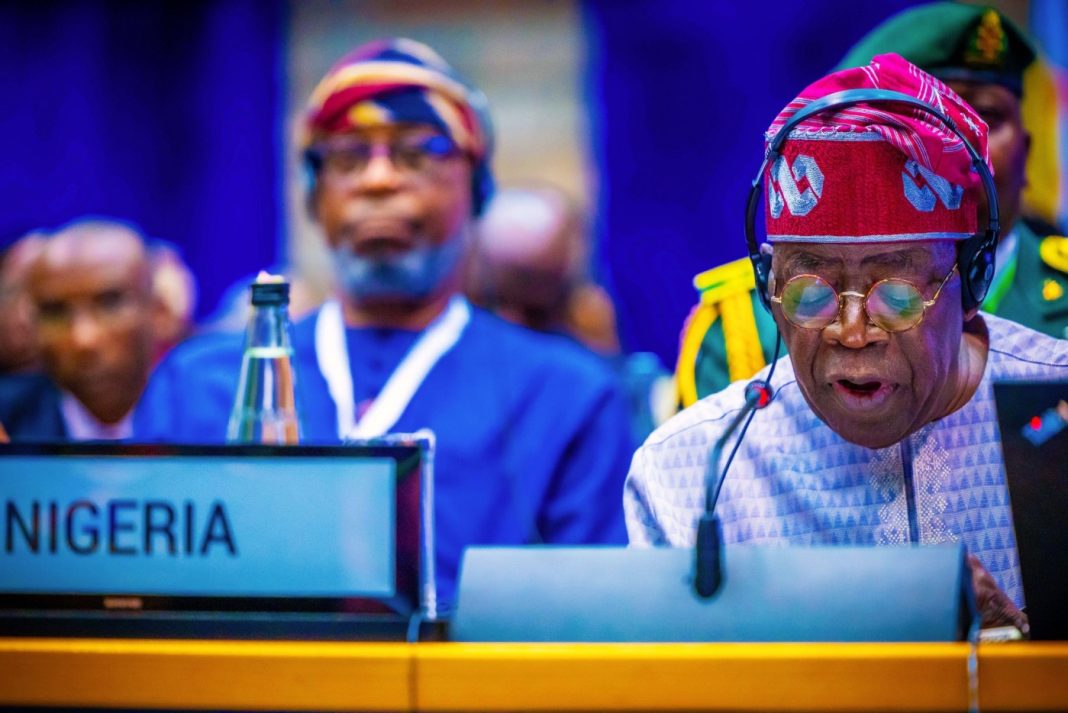ABUJA, Nigeria – Nigeria’s President Bola Tinubu is under scrutiny for his decision to increase his federal cabinet to 48 ministers, the largest since the country’s return to democracy in 1999.
The Tinubu administration is projected to spend N8.63 billion on ministers’ salaries and allowances over the next four years.
This figure may increase pending a review by the Revenue Mobilisation Allocation and Fiscal Commission, RMAFC.
The expansion and associated expenses have been criticized by experts who see it as a departure from Tinubu’s campaign promise to reduce the cost of governance.
The decision appears to place considerable stress on Nigeria’s resources, raising questions about the government’s fiscal responsibility.
“This is a clear contradiction to President Tinubu’s promise of frugality. Having more ministers, who would in turn have many aides, exacerbates the burden on public coffers at the expense of millions in need of good governance,” said Umar Yakubu, Executive Director of the Centre for Fiscal Transparency and Integrity Watch, CefTIW, on Tuesday, August 22, 2023.
The federal government’s planned expenditure of over N13 billion on ministerial salaries and allowances is separate from estacodes and other travel expenses.
Given that international travel is common among Nigerian politicians, the exact cost remains uncertain but is expected to be substantial.
“A minister’s monthly salary is fixed at N650,135.99. That translates to lavish allowances, supplementary allowances, and perks that shoot up their earnings. Yet, we have fiscal challenges and an underfunded public sector,” said Joseph Momoh, a developmental economist at the Abuja Chamber of Commerce and Industry.
Moreover, 2023’s budget allocates N8.5 trillion out of N21.82 trillion for the remuneration of public officials, a substantial increase from N6.8 trillion in the previous year’s N16.3 trillion budget.
In light of the country’s fiscal challenges, experts are renewing calls to implement recommendations from the Stephen Oronsaye panel’s 2011 report, which suggested mergers to reduce the number of ministries, departments, and agencies, MDAs.
“If the MDAs are pruned down to 161 as recommended, we could save over N12 trillion,” Yakubu added.
Momoh emphasized the need for a more streamlined government.
“The idea that each state must have a minister can no longer hold water due to the high cost of governance. Twenty ministers, or at most 25, can do the job. There’s no need for 48.”
Public Relations Officer of RMAFC, Christian Chukwu, said that while a proposal to review the salaries and allowances of public office holders is underway, it has not been approved yet.
As Nigeria grapples with increasing debt servicing costs — N1.24 trillion between January and March 2023 alone — questions about the wisdom of an expanded cabinet and its financial implications on the nation’s already strained resources become ever more pressing.
Experts urge a shift in focus from an inflated cabinet to efficient governance, citing the need for accountability and fiscal responsibility to ensure Nigeria’s long-term economic health.







